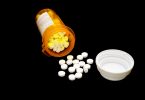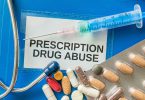Over 7 million Americans are struggling with a drug addiction of some kind. This includes at least 5% of the U.S. adolescent population.
Unfortunately, only a portion of this population is able to receive treatment for severe addictions. Many drug addictions lead to overdoses or compromising behavioral patterns.
It can be difficult to break the cycle of addiction if treatment does not seem viable. A lot of individuals simply can’t visualize a life without drugs.
However, an addiction-free life offers everyone a host of physical and emotional benefits.
In this post, we’ll look closely at ways your life can improve once you stop doing drugs. Read on for insight!
1. Give Your Nervous System Relief
Most drugs immediately enter the bloodstream and begin targeting the nervous system. Alcohol, for example, acts as a nervous system suppressant.
An addiction can, over time, keep your brain and nervous system in a nearly permanent state of suppression. This can lead to damage of all kinds, particularly if you quit cold turkey.
Quitting in the midst of an addiction can cause the nervous system to bounce back to life, sometimes in fatal ways.
Living drug-free will promote healthy nervous system function. Your body will generate natural amounts of dopamine, the pleasure chemical often released during high drug intakes. Your body produces dopamine often as a result of healthy activities, particularly rigorous exercise and even meditation.
What’s more, when you stop drugs, you’ll enable your nervous system to heal from long, damaging periods of suppression. This can reduce your risk of permanent nerve damage in the future.
2. Enjoy a Stable Occupation
Addictions of any kind can intervene in your life in a variety of ways. It’s very common for drug addicts to struggle with job retention.
Most jobs require employees to maintain a regular work schedule. What’s more, many bosses require workers to meet a standard of performance at all times.
Drug addictions can lead to painful, compromising withdrawal symptoms. These symptoms can impact sleep, physical performance, and your ability to show up at work on time.
A job can be your key to generating a stable income, having reliable shelter, and sustaining yourself in other ways. When you stop doing drugs, you automatically increase your odds of keeping a job.
What’s more, living drug-free often means you have the opportunity to start a career and maintain a stable occupation.
3. Save Money
Addictions can be incredibly expensive. In fact, the National Institute on Drug Abuse estimates that drug addictions cost a grand total of $740 billion a year!
This estimate accounts for the costs of lost work, addiction-related crime, health care and other services, and more.
On an individual level, an addict may spend hundreds of dollars on drug purchases in a month. Someone struggling with an addiction may also face a lot of medical bills as a result of detox treatment or emergency transportation to the hospital.
When you stop doing drugs, you automatically give your wallet a break. You are taking a conscious step towards a financially confident life.
4. Build Your Immune System
Drugs that are smoked or inhaled can be incredibly damaging to the body’s respiratory system. Other drugs can compromise your immune system and invite diseases of all kinds.
These diseases, such as pneumonia, immune system disorders, and more, can chip away at your immune system. They can prevent you from fighting off more serious illnesses in the future.
They can even result in a fatality.
Living drug-free means giving your immune system a chance to defend you from compromising diseases. You’ll be able to rebuild your immunity and reduce your risk of future illness.
5. Preserve Meaningful Relationships
Addictions can shatter relationships of all kinds. Dependency on drugs can inhibit romantic relationships and family ties.
This is a devastating consequence of addiction because addicts need a viable support system in order to break out of the cycle of abuse. Many people with addiction struggle with loneliness, which can simply lead to greater drug dependency.
When you stop doing drugs, you give yourself the chance to preserve meaningful relationships. You’ll be able to navigate important connections without alcohol or heroin in the way.
These relationships can be the foundation for a happy, healthy longterm lifestyle.
6. Navigate Life Circumstances in Healthy Ways
A lot of people turn to drugs or other substances as a means of navigating difficult life circumstances. In this way, many addictions stem from an emotional dependency.
When you quit doing drugs, you open the doors to the possibility of navigating life in other, healthier ways. Many rehab centers, for example, will help patients build actionable skills that they can use in the real world for managing problems.
Boosting your self-reliance can reduce the risk of future addiction.
7. Be Part of a New Community
If you attend a drug treatment center, you’ll be automatically stepping into a new and vibrant community. Many addicts experience intense isolation as a result of their addiction.
A rehab center will enable you to stop using drugs with the support of others with similar life experiences. If you join a local support group, you’ll be connecting with a community that you can be a part of for the rest of your life.
Being part of a community can be incredibly life-affirming. It can also reduce the risk of addiction in the future and help you develop more meaningful relationships.
8. Increase Chances of Survival
In 2016, 64,000 people died from drug overdoses. Addiction is dangerous for the simple fact that it can be fatal.
When you stop doing drugs, you automatically increase your chances of survival. You consciously choose the possibility of living a life without the risk of overdose looming on the horizon.
How Your Life Improves When You Stop Doing Drugs
Living drug-free can offer individuals of all backgrounds the possibility of life. It can also benefit your immune and nervous systems, enable you to maintain critical relationships, and even help you save money.
What’s more, when you give up an addiction, you give yourself the opportunity to recreate a new life. A stable occupation, new community, and healthy means of navigating life’s circumstances all await.
If you’re wondering how to stop using drugs, there is an answer. A rehabilitation program is waiting to help you embrace the life you long to live.
Find Rehab Centers is your ultimate non-profit supported rehab center directory. If you or a loved one is struggling with an addiction, we can help.
Locate a rehab center near you now!

















